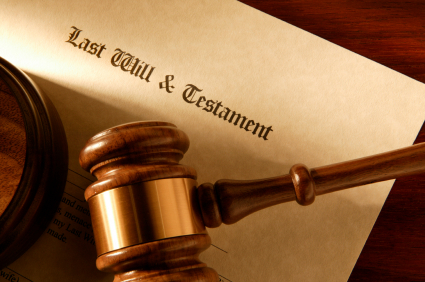The client asked “Now that my will is signed, do I need to file it at the courthouse?” “No” I said, “but keep it in a safe place because the original must be filed when it is probated.” Children often come to us seeking to probate a parent’s will, but all they have is a copy. If a will is lost, can a copy be admitted to probate? Maybe, maybe not according to existing Mississippi law and a recent New York case with an interesting family twist.
After a search of Robyn Lewis’ home, it appeared she died intestate (without a will). Letters of probate administration were granted to her parents because Robyn was divorced and without children at the time of her death. Eight months later, Robyn’s ex-father-in-law sought to revoke the letters and admit to probate a 1996 last will executed in Texas. The last will was in the possession of the ex-husband’s mother and named the ex-husband as the beneficiary. Although the ex-husband is disqualified to receive under a pre-divorce will, the father-in-law was named as a contingent beneficiary and was not so barred. Probate litigation commenced as to the validity of the last will. The ex-husband testified that they executed 4 mirror copies of their wills so they could leave a copy with each parent and at their Texas and New York homes. A friend of Robyn testified that she saw a new will that purported to revoke all past wills in Robyn’s possession; however she could not testify this lost will was duly executed. As a result, the probate court stated the lost will could not be given effect, even for the limited purpose of revoking the 1996 will, and admitted the 1996 will to probate over the objections of the Robyn’s family.
On appeal, the Court of Appeals held that the lower court was correct in refusing to allow the lost will to revoke the 1996 will because of the insufficient evidence as to the lost will’s due execution. The case was sent back to the lower court because unresolved questions remained concerning whether the 1996 will was revoked by destruction with ‘revocatory intent.’ There were four copies of the will, each meant to have the same effect as the original, yet one of the copies to be left at Robyn’s home could not be found. The court stated that destruction is presumed where a will once possessed by the decedent cannot be posthumously found, and that the will’s proponent must overcome the presumption as a condition of probate. The matter was remanded to provide the ex-parents-in-law a fair opportunity to disprove the strong presumption that the 1996 will had been destroyed. Estate of Lewis, 2015 WL 3495582 (June 4, 2015) (N.Y.)
In Mississippi, a copy of a lost will may be properly admitted to probate if it can be proven that the original Last Will and Testament was properly executed and witnessed and subsequently lost. This was considered in the 1978 case of Gaston v. Gaston, 358 So.2d 376 (Miss. 1978). In that case, the nieces of Willie Gaston contended that he died without a will and that they inherited as his heirs. His common-law wife, Edna, and their son, Sylvester, argued that Willie’s valid Last Will and Testament had been lost and that it left everything to them. A four-page copy of the will (blank as to date and signatures) was received as an exhibit. Mrs. Robbie Lee Gore testified that she typed the instrument styled “Last Will and Testament of Willie Gaston” in early December 1966, while a secretary in the law offices of Denton and Gore. After the original was delivered to Willie, she did not remember him returning to the office to execute the will, nor did she remember signing as a witness to the will. In fact, she did not remember Willie Gaston.
Mississippi Code Section 91-5-1 provides that, if the will is not a holographic (entirely handwritten by the will-maker) will: “(I)t shall be attested by two (2) or more credible witnesses in the presence of the testator or testatrix.” Section 91-7-7 provides: “The due execution of the will . . ., must be proved by at least one of the subscribing witnesses, if alive and competent to testify. If none of the subscribing witnesses can be produced to prove the execution of the will, it may be established by proving the handwriting of a testator and of the subscribing witnesses to the will, or of some of them.”
No witness testified as a subscribing or attesting witness, nor did any witness testify that the will was signed by Willie in his or her presence. Furthermore, James McCain, who testified that he saw the names of James McKibben and Robbie Lee Gore on the original, did not testify that he saw the testator or any witness sign the will, nor did he testify that he was familiar with their handwriting and that the names on the will were in fact their genuine signatures. Thus, there was neither direct nor secondary evidence that the alleged lost or destroyed will was ever signed and witnessed and executed according to law. Therefore, the chancellor was correct in finding that there was insufficient evidence the lost or destroyed will had been properly executed and in denying it for probate.
To arrange a meeting to discuss your rights and planning options, contact our office online or call us at 601-987-3000.
Do You Know Where Mama’s Will Is?
